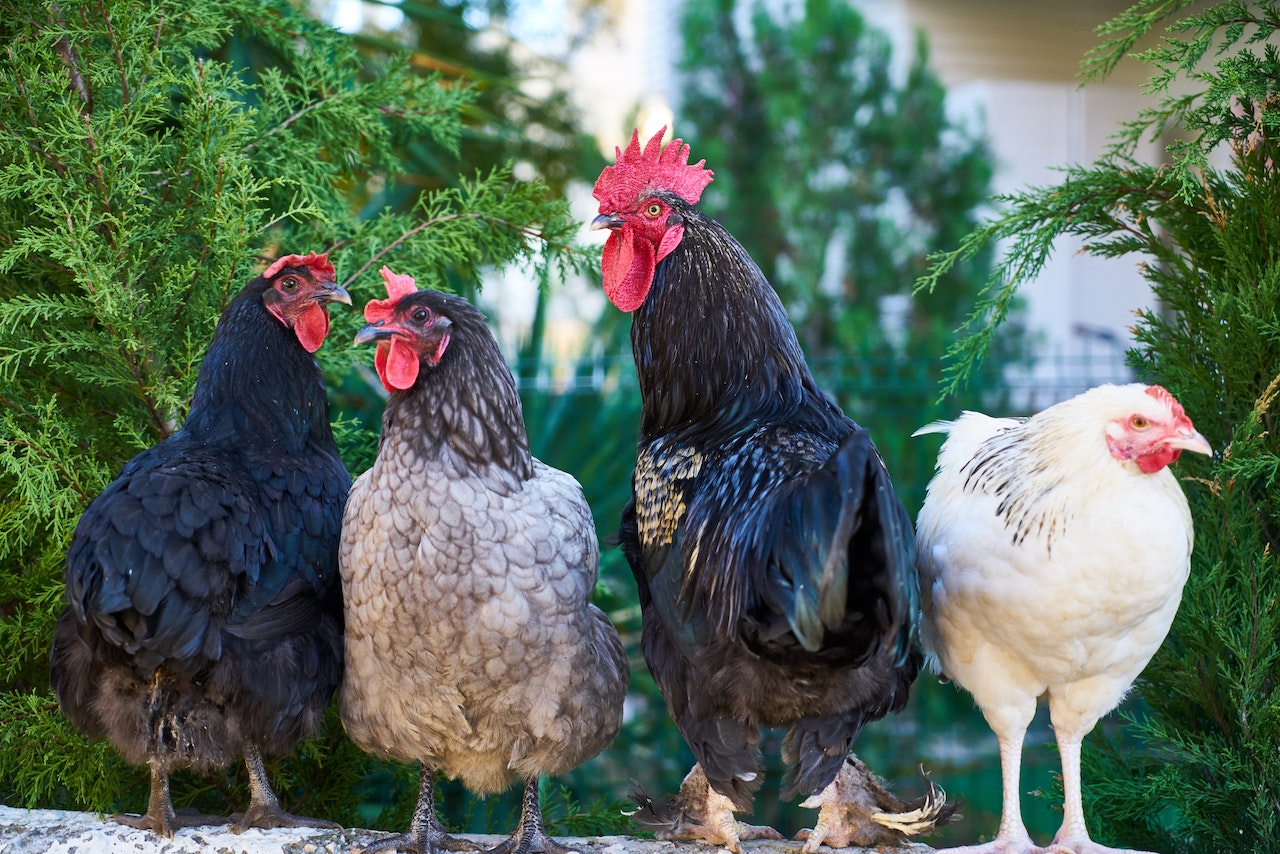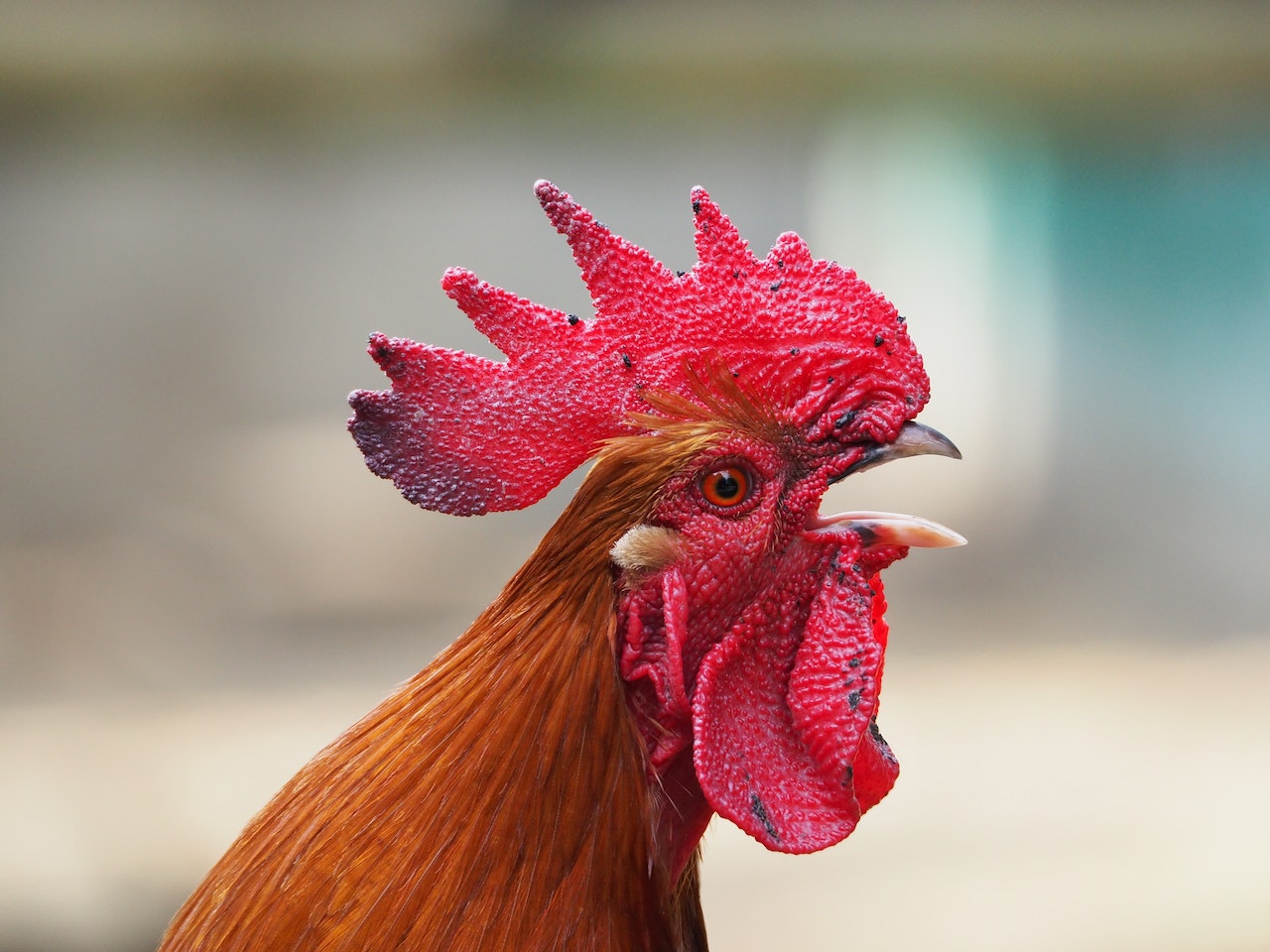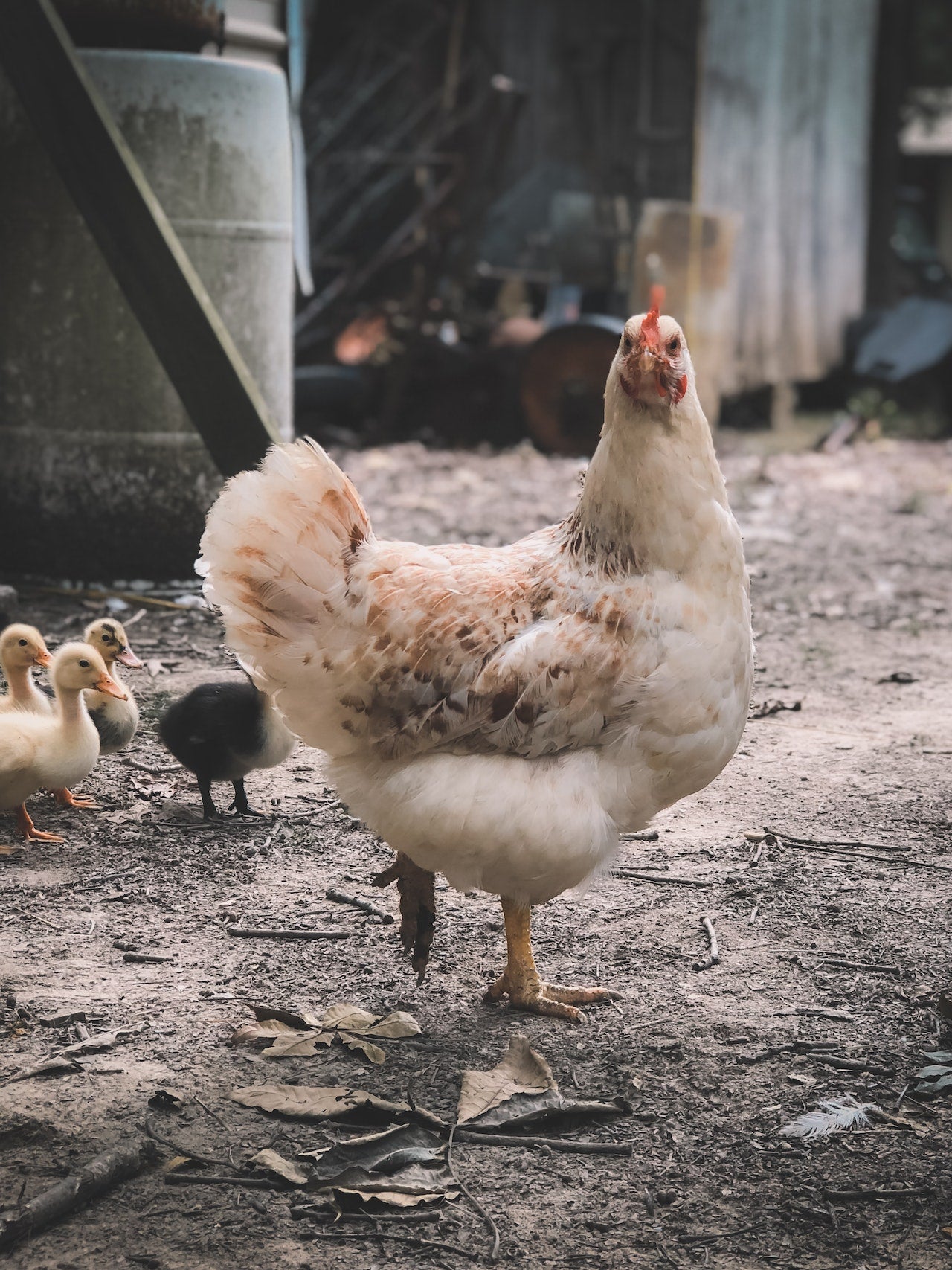
Feeding chickens a varied diet that includes both plant-based and animal-based foods can help to provide them with the nutrients they need to maintain good health and vitality. However, it's important to ensure that any foods you give to your chickens are safe and appropriate for their dietary needs. Additionally, you should always monitor your chickens closely when introducing new foods to their diet to ensure that they tolerate them well and don't develop any digestive problems.
Can Chickens Eat Pineapple?
Yes, chickens can eat pineapple, but it should be given to them in moderation as a treat and not as a staple part of their diet. Pineapple is a good source of vitamins and minerals for chickens, including vitamin C, manganese, and potassium. However, too much pineapple can be harmful to chickens because it contains high levels of acid, which can cause digestive problems.
It's also important to note that while chickens can eat the flesh of a ripe pineapple, they should not be given the skin or leaves. The skin and leaves of pineapple contain high levels of a substance called bromelain, which can cause digestive upset and irritation to the chickens' mouths.

Nutritional Benefits Of Feeding Chickens Pineapple
Feeding chickens pineapple in moderation can provide them with some nutritional benefits. Pineapple is a good source of vitamins and minerals that are important for chicken health, including:
- Vitamin C: Pineapple is a good source of vitamin C, which is important for chickens because it helps support a healthy immune system. This can help them fight off infections and diseases.
- Manganese: Pineapple is also a good source of manganese, which is important for bone health, as well as for the metabolism of carbohydrates and protein.
- Potassium: Pineapple is a good source of potassium, which is important for maintaining proper fluid balance in the body and for supporting normal muscle and nerve function.
- Fiber: Pineapple contains dietary fiber, which can help promote healthy digestion and bowel movements in chickens.
It's worth noting that pineapple should only be given to chickens as an occasional treat, as feeding them too much can lead to digestive problems. Additionally, while pineapple is a good source of certain vitamins and minerals, it should not be considered a replacement for a balanced diet that includes a variety of other healthy foods.
Can Chicken Eat Pineapple Skin?
No, chickens should not be given pineapple skin to eat. Pineapple skin is tough, fibrous, and contains high levels of a substance called bromelain, which can be harmful to chickens. Bromelain is an enzyme that can break down proteins and can cause irritation and inflammation in the chickens' digestive tracts, leading to digestive upset and discomfort.
In addition to the risk of digestive problems, the tough texture of pineapple skin can be difficult for chickens to swallow and digest, which could lead to choking or other issues. Therefore, it's best to avoid giving pineapple skin to chickens and instead provide them with the flesh of the fruit in moderation as a healthy treat.
Can Chicken Eat Pineapple Leave?
No, chickens should not be given pineapple leaves to eat. Pineapple leaves are tough and fibrous, and like the skin, they also contain high levels of the enzyme bromelain, which can be harmful to chickens. Bromelain can cause digestive upset and irritation in the chickens' mouths, throats, and digestive tracts.
Furthermore, the tough texture of the leaves can make them difficult for chickens to swallow and digest, which can lead to choking or other problems. Therefore, it's best to avoid giving pineapple leaves to chickens and instead provide them with the flesh of the fruit in moderation as a healthy treat.
Can Young Chicks Eat Pineapple?
It is not recommended to feed young chicks pineapple, especially those that are just a few days old. Chicks have delicate digestive systems that are still developing, and introducing new foods too early can lead to digestive problems, such as diarrhea or constipation.
As chicks get older, around 2-3 weeks of age, their digestive systems become more mature and better able to handle a wider variety of foods. At this point, you could introduce small amounts of pineapple to their diet as an occasional treat.
However, it's important to keep in mind that pineapple should always be given to chicks in moderation, and only as a supplement to their regular diet. It should not be used as a replacement for a balanced chick feed that contains all of the nutrients they need to grow and develop properly. Additionally, you should always monitor your chicks closely when introducing new foods to their diet to ensure that they tolerate them well and don't develop any digestive problems.
Risk Of Feeding Chicken Pineapple
Feeding chickens pineapple in moderation is generally safe, but there are some potential risks that you should be aware of:
- Bromelain: Pineapple contains high levels of the enzyme bromelain, which can cause digestive problems in chickens, especially if they eat too much of it. Bromelain can cause irritation and inflammation in the chickens' digestive tracts, leading to digestive upset and discomfort.
- High sugar content: Pineapple is a relatively high-sugar fruit, and feeding chickens too much sugar can disrupt their blood sugar levels and lead to obesity, which can increase the risk of health problems.
- Choking hazard: The tough texture of pineapple skin and leaves can be difficult for chickens to swallow and digest, which could lead to choking or other issues.
- Nutrient imbalances: Feeding chickens too much pineapple or using it as a replacement for a balanced diet can lead to nutrient imbalances that can affect their health and growth.
To minimize the risks of feeding chickens pineapple, it's best to offer it to them in moderation, as an occasional treat, and as a supplement to their regular diet of balanced chicken feed. It's also important to monitor your chickens closely when introducing new foods to their diet to ensure that they tolerate them well and don't develop any digestive problems.
How Much Pineapple Can Chickens Consume
Chickens can consume small amounts of pineapple as a treat, but it should be given to them in moderation. As a general rule, you should limit the amount of pineapple that you give to your chickens to no more than 10% of their daily diet. This means that if you have a small flock of four chickens, you should offer them no more than one or two slices of pineapple per day as a treat.
It's important to note that the exact amount of pineapple that you should give to your chickens will depend on a variety of factors, including their age, size, and overall health. You should always monitor your chickens closely when introducing new foods to their diet to ensure that they tolerate them well and don't develop any digestive problems.
Additionally, it's important to remember that pineapple should always be offered as a supplement to your chickens' regular diet of balanced chicken feed. It should not be used as a replacement for a balanced diet, as this can lead to nutrient imbalances and other health problems.
Final Thoughts
As with any treat, it's best to introduce pineapple slowly into your chickens' diet and watch for any signs of digestive upset. If your chickens seem to enjoy pineapple and tolerate it well, you can continue to offer it to them in moderation as a healthy and nutritious treat.



